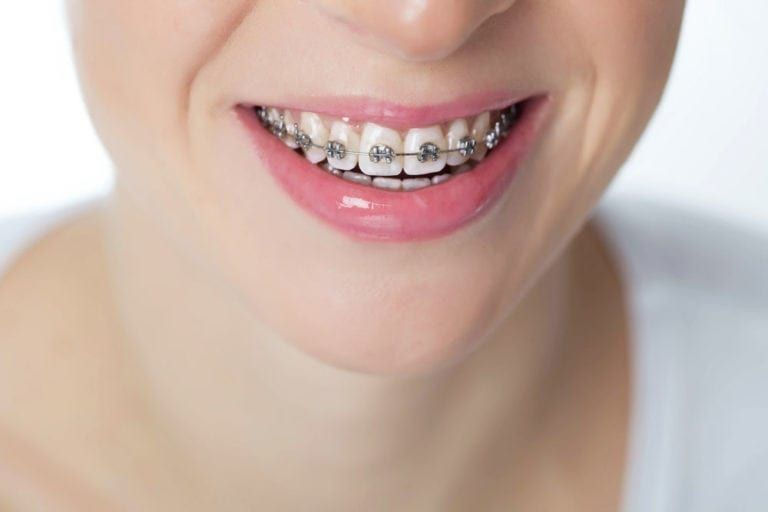The Science Behind Teeth Whitening: What Really Works?
- dclinicdubai
- Mar 15, 2025
- 5 min read
Teeth whitening is one of the most popular cosmetic dental treatments worldwide, and in Dubai, it has become a go-to option for those looking to brighten their smiles. Whether you’re dealing with stains from coffee, wine, or simply the natural effects of aging, teeth whitening can provide a noticeable improvement. But what’s the science behind this procedure? How do whitening treatments actually work, and which methods are most effective? In this article, we’ll delve into the science of teeth whitening, focusing on the most effective treatments available, particularly in the context of cosmetic dentistry in Dubai.

How Teeth Whitening Works:
Teeth whitening works by using various chemical agents to break down and remove surface stains, as well as deeper discoloration in the enamel. The active ingredients in whitening products typically fall into one of two categories: abrasives or bleaching agents.
1. Abrasives:
Abrasive products, like many toothpaste brands, physically scrub the surface of the teeth to remove surface stains. This method can be effective in removing minor staining caused by food and drink but does not change the natural color of the teeth.
2. Bleaching Agents:
Bleaching agents, on the other hand, penetrate the enamel and break down the chemical bonds of the stains themselves. The most common bleaching agents are hydrogen peroxide and carbamide peroxide. These substances are able to lighten the natural color of teeth by releasing oxygen molecules that break down the discoloration.
Popular Teeth Whitening Methods:
1. In-Office Whitening Treatments:
In-office whitening treatments are the most effective and fastest method for achieving a noticeably brighter smile. These treatments are administered by a cosmetic dentist and typically involve the use of a highly concentrated bleaching gel activated by a special light or laser.
Benefits of In-Office Whitening:
Quick Results: In just one visit, you can see dramatic improvements in the whiteness of your teeth.
Stronger Concentration: The professional-grade bleaching agents used in dental offices are stronger than over-the-counter products, delivering faster results.
Safe and Controlled: A professional dentist can ensure that the whitening process is done safely, minimizing the risk of irritation or damage to your gums.
2. At-Home Teeth Whitening Kits:
At-home teeth whitening kits are a more affordable and convenient option for those looking to whiten their teeth from the comfort of their own home. These kits typically contain custom-fit trays or strips that are filled with a bleaching gel and worn for a certain amount of time each day.
How Do At-Home Kits Work?
Custom Trays: Dentists often provide custom trays to ensure that the whitening gel is applied evenly and effectively to the teeth.
Whitening Strips: Over-the-counter whitening strips are pre-loaded with a hydrogen peroxide gel that adheres to the surface of the teeth. These strips are easy to use but may not produce results as quickly as professional treatments.
Advantages of At-Home Kits:
Cost-Effective: Home whitening treatments are generally less expensive than in-office procedures.
Convenient: You can whiten your teeth on your own schedule, making it ideal for busy individuals.
Gentler: At-home whitening treatments use a lower concentration of whitening agents, making them a gentler option for people with sensitive teeth.
3. Over-the-Counter Whitening Products:
Many over-the-counter products, such as whitening toothpaste, mouthwashes, and strips, promise to whiten teeth with regular use. These products often contain mild bleaching agents like hydrogen peroxide but in much lower concentrations than professional treatments.
How Effective Are Over-the-Counter Products?
Surface-Level Whitening: Most over-the-counter whitening products only address surface stains rather than deep-set discoloration.
Milder Results: Over-the-counter products take longer to show results compared to professional whitening methods.
4. Natural Teeth Whitening Remedies:
For those seeking more natural approaches to teeth whitening, there are numerous home remedies, including baking soda, activated charcoal, and oil pulling. While these methods may help reduce surface stains, they are generally not as effective as professional whitening treatments.
Common Natural Remedies:
Baking Soda: Due to its mild abrasive properties, baking soda can help remove surface stains but does not alter the natural color of your teeth.
Activated Charcoal: Activated charcoal is believed to absorb toxins and stains, but its effectiveness is debated, and it may not provide lasting results.
Oil Pulling: Swishing oil, such as coconut oil, around in your mouth is thought to remove bacteria and reduce plaque, which may indirectly whiten teeth.
5. Laser Teeth Whitening:
Laser teeth whitening is a newer, more advanced option for in-office treatments. During the procedure, a bleaching gel is applied to the teeth, and a laser is used to activate the gel, speeding up the whitening process.
Benefits of Laser Whitening:
Faster Results: The laser accelerates the whitening process, allowing for noticeable results in a shorter amount of time.
Precise Application: The laser can be carefully controlled to ensure the gel only targets the teeth and not the surrounding gums.
Longer-Lasting Effects: Some patients find that laser whitening provides longer-lasting results compared to traditional whitening methods.
Factors Affecting Teeth Whitening Results:
While teeth whitening can deliver fantastic results, there are several factors that can influence how effective the treatment will be:
1. Tooth Sensitivity:
Individuals with sensitive teeth may experience discomfort during or after whitening treatments. It's essential to consult with your dentist to ensure that your treatment plan is tailored to your sensitivity levels. Some treatments are designed specifically for sensitive teeth and use lower concentrations of bleaching agents.
2. Type of Stains:
The type of stain on your teeth also plays a role in the effectiveness of whitening treatments. Extrinsic stains, which occur on the surface of the teeth (such as those caused by coffee or smoking), tend to respond better to whitening treatments than intrinsic stains, which occur deeper within the tooth structure.
3. Age:
As we age, our teeth naturally darken, and the enamel becomes thinner. Older individuals may experience more significant results from teeth whitening treatments, but they may also require longer or more intensive treatments.
4. Oral Hygiene:
Maintaining good oral hygiene is crucial for ensuring the longevity of whitening results. Brushing twice a day, flossing, and visiting the dentist regularly can help preserve your newly whitened smile.
Final Thoughts:
Teeth whitening is an effective and widely used cosmetic treatment to enhance your smile and boost your confidence. Whether you opt for in-office whitening, at-home kits, or over-the-counter products, understanding the science behind these treatments helps you make informed decisions about which option is best suited to your needs. If you’re considering teeth whitening in Dubai, consulting with a cosmetic dentist can ensure that you choose the most effective treatment for your specific goals. With the right care and treatment, you can achieve a brighter, more radiant smile that lasts for years to come.


Comments